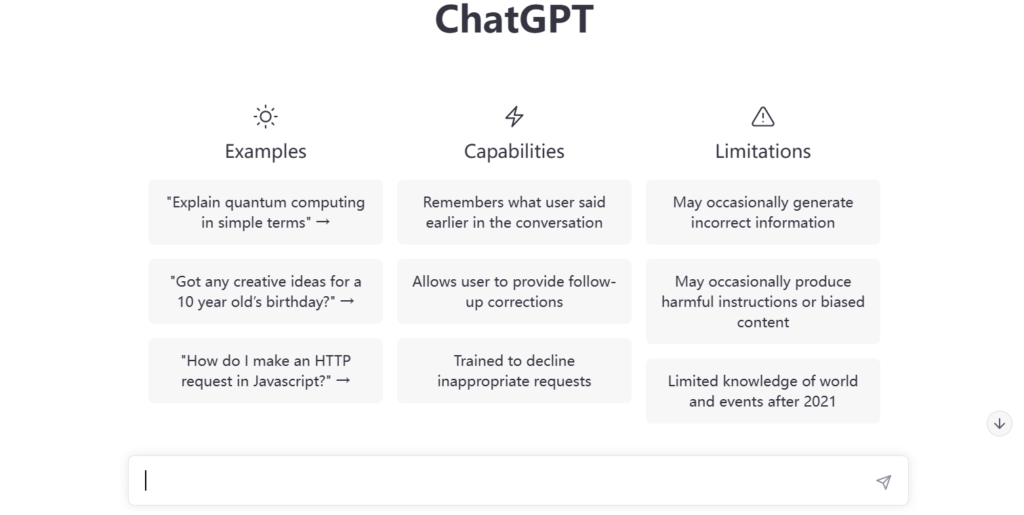In our current society, it is important for kids to understand the ABCs of money. Money is a tool that can be used to achieve financial goals, but it is not always easy to earn or save. That is why financial education is critical for kids.
There are a lot of things that go into financial education. For example, kids need to understand the difference between needs and wants. They also need to understand how to set goals and save money. In addition, kids need to know how to spend money wisely.
Financial education is important for kids because it teaches them how to be responsible with money. With financial education, kids can learn how to save money for their future. They can also learn how to make smart choices with their money.
Money is a important part of life and kids need to learn about it
Understanding the role of money is essential for children, and there are several key lessons they should grasp. Here are the essential aspects of money that kids should learn:
First and foremost, it’s important for kids to recognize that money plays a significant role in our lives. Grown-ups use money regularly to pay for goods and services, making it crucial for children to understand its purpose and function. To cultivate this understanding, a practical way to start is by introducing the concept of a piggy bank and encouraging them to save.
Another crucial lesson is the importance of saving. Like adults, children should learn the value of setting aside money for future expenses or desired items. One approach is to encourage them to allocate a portion of their allowance to their piggy bank each week. Additionally, they can identify items around the house that they no longer need and sell them, contributing to their savings.
Kids should also develop an understanding of responsible spending. Just as adults strive to spend wisely, children should consider the necessity of an item before making a purchase. Teaching them to evaluate needs versus wants can foster thoughtful decision-making. Furthermore, they can be encouraged to seek discounts, such as utilizing coupons or taking advantage of sales, as a way to spend their money more effectively.
Lastly, children should learn the value of giving. Similar to adults, kids can choose to contribute their money to those in need or organizations that support worthy causes. They can participate by setting aside a portion of their allowance in a charity jar regularly or by donating old toys and clothes to local thrift shops.
All these lessons—understanding the importance of money, saving, responsible spending, and giving—are crucial for children to grasp. By instilling this knowledge, they can begin making informed decisions about their finances, promoting wise practices in spending, saving, and giving.
Teaching kids about money can help them make better decisions later in life
When it comes to money, adults often make decisions based on emotions rather than logic. This can lead to financial ruin, which is something that kids can learn to avoid by understanding the importance of financial education.
One of the best ways to teach kids about money is to help them understand the basics of budgeting and saving. This can be done by setting up a simple budget with them, and showing them how to track their spending. You can also help them to understand the importance of setting aside money each month for savings.
Another important topic to cover with kids is the concept of debt. Helping them to understand how interest works, and how it can add up quickly, can be a valuable lesson. You can also teach them about the different types of debt, such as credit card debt and student loan debt.
Finally, it’s also important to teach kids about investing. This can be a complex topic, but even teaching them the basics, such as the difference between stocks and bonds, can be helpful. Helping them to understand the importance of diversification, and how to research investment options, can also be valuable.
Teaching kids about money can be a challenge, but it’s important to give them the tools they need to make good financial decisions later in life. By covering the basics of budgeting, saving, debt, and investing, you can give them a solid foundation on which to build their financial future.
Financial education can help kids understand concepts like budgeting, saving, and investing
It’s never too early to start learning about money. Just like math or reading, financial education is a critical life skill that children need to learn in order to be successful adults.
One of the most important things financial education can teach kids is the concept of budgeting. Developing a budget is a key part of responsible money management, and it’s something that everyone should know how to do. A budget can help kids track their spending, set goals, and make sure they’re not spending more money than they have.
Saving money is another important concept that kids can learn through financial education. Teaching kids to save money can help them develop good financial habits that will last a lifetime. It’s important to start teaching kids about saving early on, so that they can learn to set aside money for future expenses.
Investing is another important topic that kids can learn about through financial education. Investing can help kids grow their money over time, and it’s a good way to teach them about how to manage risk. Financial education can help kids understand the basics of investing, and how to make smart investment choices.
Teaching kids about money is an important part of helping them become financially responsible adults. Financial education can help kids understand budgeting, saving, and investing. All of these concepts are important for kids to learn so that they can make smart financial decisions throughout their lives.
It can also teach them about responsible spending and borrowing
One of the most important things that financial education can teach kids is responsible spending and borrowing.
Here are some additional details on these important aspects:
Responsible Spending: Financial education helps children develop a sense of financial discipline and make informed choices about their spending habits. They learn to differentiate between needs and wants, understanding that not every purchase is essential. By emphasizing the importance of thoughtful spending, children become more conscious of their buying decisions and are less likely to make impulsive purchases. They learn to prioritize their spending on necessary items and consider the long-term value and utility of their purchases.
Financial education can also teach kids about budgeting. They learn to allocate their money wisely, setting limits on different expense categories such as entertainment, clothing, or leisure activities. By creating a budget and tracking their spending, children gain a deeper understanding of where their money is going and how to manage it effectively. This empowers them to make responsible choices that align with their financial goals and priorities.
Responsible Borrowing: Understanding borrowing is another crucial aspect of financial education. Children need to learn that borrowing money should be done judiciously and for specific purposes. They should comprehend that taking on debt should be carefully considered and based on their ability to repay it.
Financial education teaches kids about the various types of loans and their implications. They learn about interest rates, repayment terms, and the potential risks associated with borrowing. They understand that loans are typically used for significant investments like buying a home or financing education, rather than for discretionary or unnecessary expenses. By emphasizing responsible borrowing, children develop a cautious approach towards debt and avoid accumulating excessive or unmanageable financial obligations.
Moreover, financial education can also instill the importance of building a good credit history. Children learn that responsible borrowing and timely repayment contribute to a positive credit record, which can be crucial for future financial opportunities such as obtaining loans, renting an apartment, or securing favorable interest rates. This understanding encourages responsible borrowing habits and the importance of meeting financial obligations promptly.
Overall, financial education equips children with the knowledge and skills needed for responsible spending and borrowing. By developing these essential financial habits early on, children are better prepared to make informed decisions, manage their finances wisely, and establish a strong foundation for their future financial well-being.
Financial education can help reduce stress later in life
It’s important for children to understand the basics of money and financial planning from an early age. Financial education can help reduce stress later in life by teaching kids how to budget, save, and spend responsibly.
When children are taught about money, they learn how to make choices about spending and saving. They also become more aware of how to manage their finances both in the short and long term. This can help reduce stress levels later in life, when they’re faced with more complex financial decisions.
Financial education can also help children understand the importance of setting aside money for future goals. They learn that it’s essential to start saving early and to be patient when waiting for their savings to grow. This can instill good financial habits that will last a lifetime.
Overall, financial education can help reduce stress by teaching children how to budget, save, and spend responsibly. It can also help them understand the importance of setting aside money for future goals. Financial education is an important tool that can help children lead happier, healthier, and more financially secure lives.
It can also help kids build good habits that will last a lifetime
It’s important for kids to learn about money and financial concepts at an early age. Not only will this give them a better understanding of the world around them, but it can also help them develop good habits that will last a lifetime. Here are six ways financial education can benefit kids:
1. It can help them develop strong money management skills.
When kids understand the basics of money management – such as budgeting, saving, and investing – they can set themselves up for success later in life. Teaching kids how to manage their money wisely can help them avoid debt and financial problems down the road.
2. It can help them make better spending decisions.
If kids understand the value of money and how to budget, they can make wiser spending decisions as they get older. They’ll be less likely to impulse buy and more likely to think carefully about their purchases.
3. It can help them understand the importance of saving.
One of the most important lessons kids can learn from financial education is the importance of saving. If they start saving early, they’ll be more likely to have the money they need later in life for things like a down payment on a house or retirement.
4. It can teach them about investing.
Another important lesson kids can learn from financial education is the basics of investing. When they understand how investing works, they can start to grow their money and build wealth over time.
5. It can help them avoid debt.
One of the biggest benefits of financial education is that it can help kids avoid going into debt. If they understand how to manage their money and make wise spending decisions, they’re less likely to end up in a situation where they’re struggling to make ends meet.
6. It can help them build good habits that will last a lifetime.
Last but not least, financial education can help kids develop good habits that will last a lifetime. When they understand the importance of savings and budgeting, they can set themselves up for a bright financial future.
Financial education is a important part of a well-rounded education
In a world where we are constantly being bombarded with ads and messages about money, it is more important than ever for kids to receive a solid education in financial literacy. Just like with any other subject, kids need to be taught the basics of money management in order to lay a foundation for future success.
There are a lot of important life lessons that can be learned through financial education. For example, kids can learn how to budget and save money, which are skills that will benefit them throughout their lives. They can also learn about the different types of investments and how to make wise choices with their money.
Financial education is an important part of a well-rounded education because it teaches kids essential life skills that they will use for the rest of their lives. It is never too early to start teaching kids about money, and the sooner they learn the basics, the better off they will be in the long run.
Children are the future, and it is important that they are taught the ABCs of money at an early age. Financial education can help children understand the value of money, how to save and invest it, and how to avoid debt. By teaching children the ABCs of money, we can help them build a strong foundation for their future financial success.










